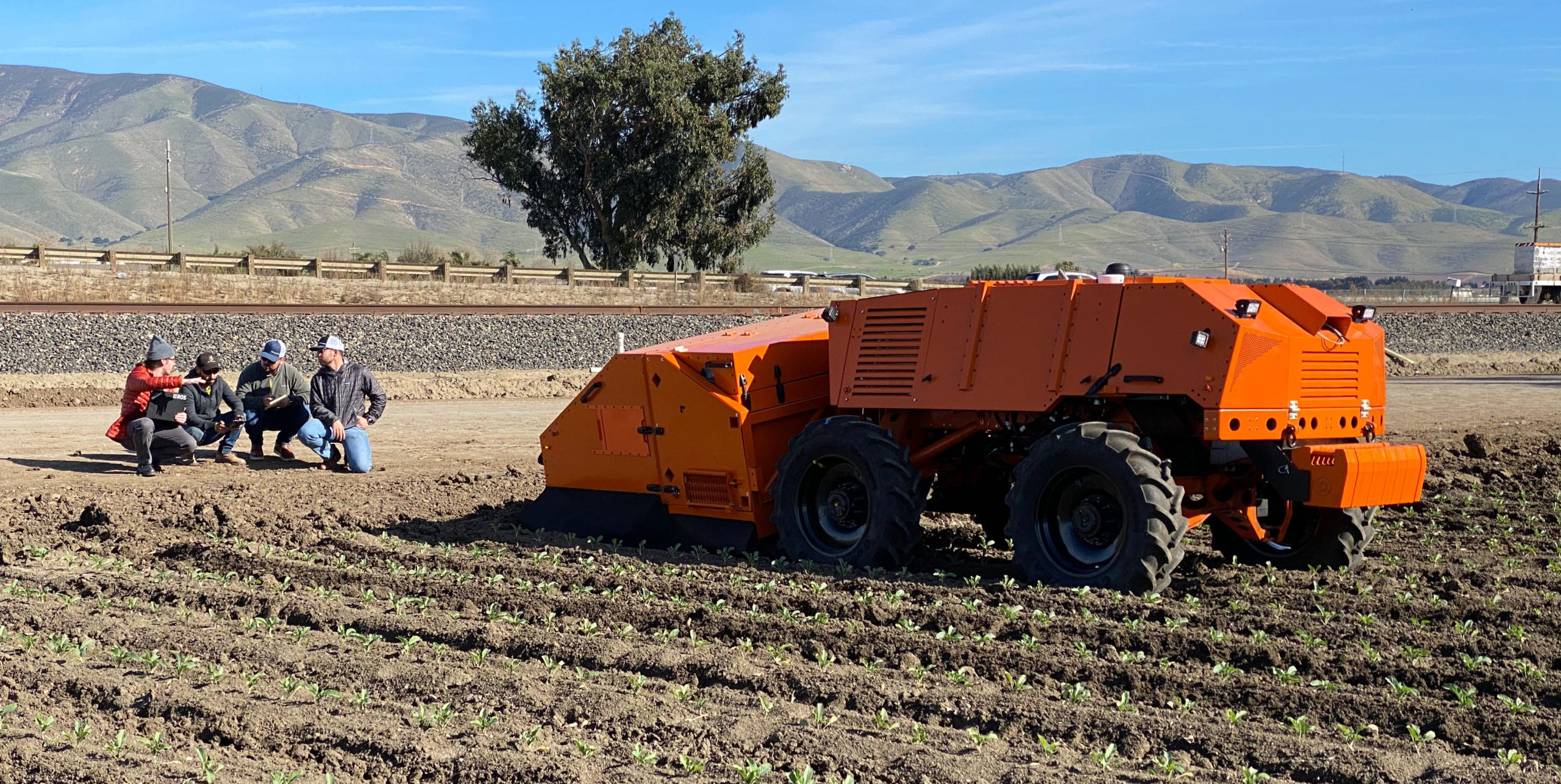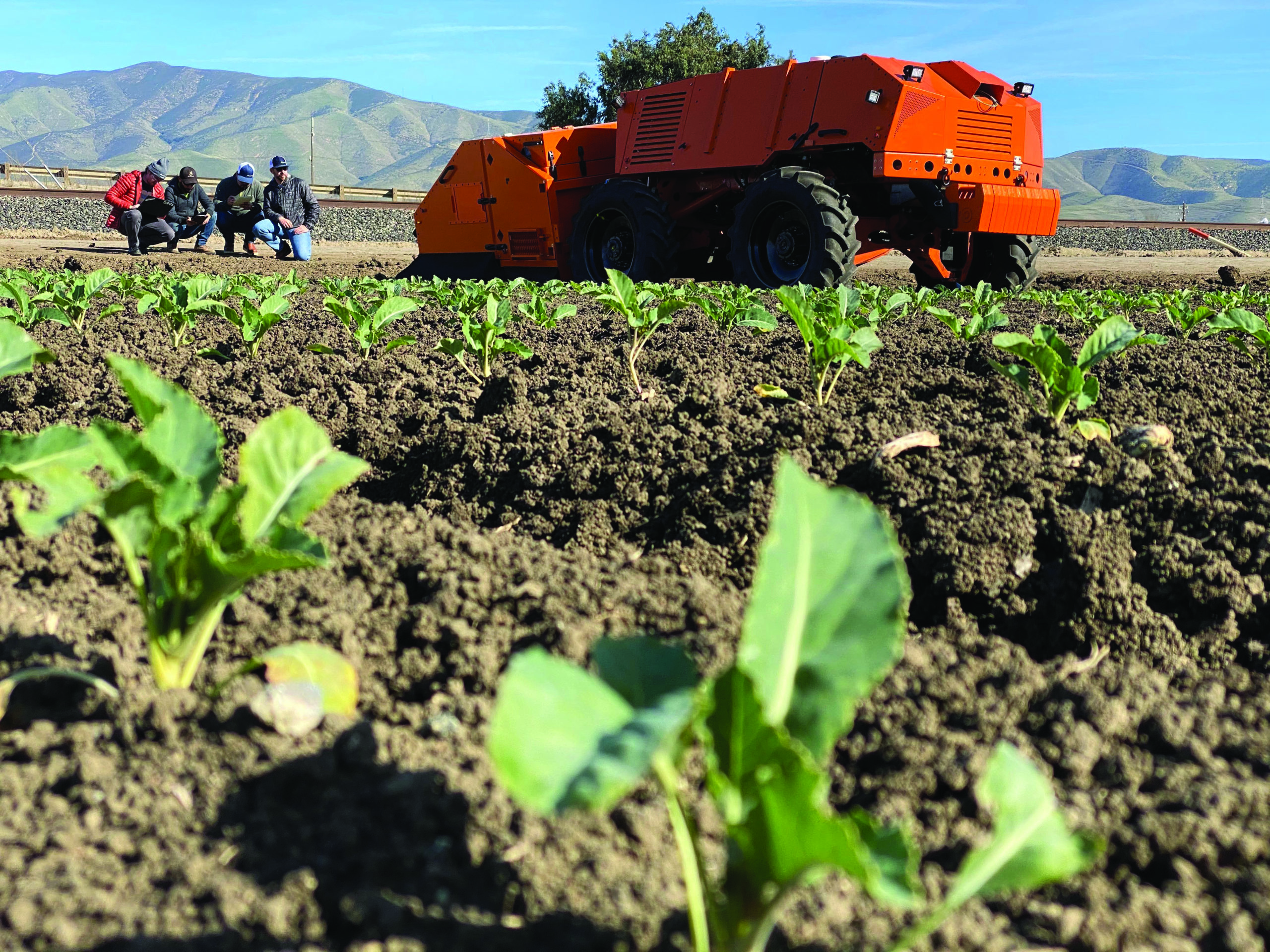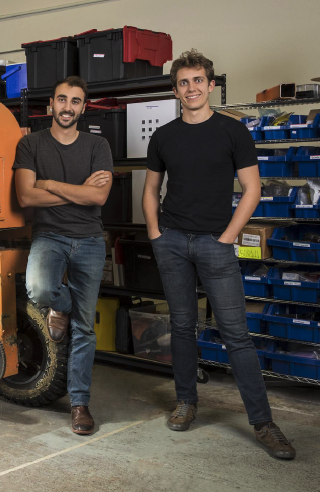
May 20, 2020
Robotic, mechanical weeder on horizon for no-herbicide farms
A chemical-free option for weed control is in the sprawling fields of California’s elite organic vegetable growers.
FarmWise, a San Francisco-based venture, over a year ago unveiled an autonomous system that detects and mechanically destroys weeds using action similar to that of a hoe. While mainstream, large growers are interested in the technology for labor-saving reasons, it’s also being marketed to growers as a sustainable and chemical-free option for commercial weeding.
FarmWise co-founder Sebastien Boyer was a panelist on new technology at the Organic Grower Summit in Monterey, California, in December. He told growers about the development of the robot’s self-driving technology and fielded questions about the cost.
And while growers filled the session and Boyer said FarmWise got a lot of traction from presenting, he added that the company has already been in touch with many of the growers in attendance.
“We worked very closely with vegetable growers who had both organic fields and conventional fields,” he said in an interview later.
Powered by a diesel engine, the FarmWise machine uses an optical system to distinguish crop plants from weeds, and uproots them with a blade similar to how a human would use a hoe by hand.
Farmwise started taking queries from growers in February 2019. Large specialty crops farms, and especially organic farms, can use the help. California has arguably the strictest chemical spray rules in the U.S., and steep increases in mandated minimum wages and adverse-effect wage rates made the area ripe for agricultural robotics endeavors.
The company works almost exclusively with large growers in the Monterey/Salinas area – Boyer said there are about 50 organic growers with the capacity to work with FarmWise in a meaningful way. He didn’t disclose the pricing strategy, except to say they are priced to actually save the larger growers money on weeding costs.
While weeding, the machine can cover 10-20 acres in a day, and Boyer said in the three years prototypes have been available to the California growers, the machines have covered thousands of acres. In late 2019, the company estimated the robots had weeded more than 10 million plants.
“We’re still quite limited in the number of people we can work with today, but obviously we’re working on ways to extend this offering to more and more growers,” he said.
While the machine initially could only distinguish a few leafy greens crops from weeds, “we built our hardware as a platform that can support many different kinds of crops,” Boyer said.

The machine now can weed several different types of vegetable crops including cauliflower and brussel sprouts, with other crops to be added soon – cabbage, peppers, broccoli and celery. The group is looking to make the robot capable of other tasks. In 2019, the FarmWise team launched into a new design cycle, looking at even more tasks the machine could help growers with. An end goal is a machine that can drastically reduce labor and chemical inputs.
“We know that the cost of growing organically is growing,” Boyer said.
“Our goal is to increase farm efficiency on different growing paths, moving now to other repetitive and critical tasks farmers have to do on the farm, by using plant-level precision,” he said. “With our farming partners, we’re building a range of different abilities.”
That vision has attracted substantial investment from the agricultural community. FarmWise announced in September it had raised $14.5 million in a funding round led by Southern California’s Calibrate Ventures, and other partners including the agriculture company Wilbur-Ellis.
The money is being used to grow the company’s robotic engineering and operation teams, as well as boost research and development efforts on plant-level detection and actuation capabilities according to a press release.
Bonipak, a large Santa Maria grower with both conventional and organic production, was an early customer of FarmWise.
“The FarmWise robot is a great field solution we can rely on to tackle our critical challenges,” Bonipak owner Alain Pincot said in a press release. “It is very exciting to see the progress that has been made over the months.”
But FarmWise’s vision goes beyond just weeding fields of California vegetables.
“Farmers globally are in need of eco-friendly processes that address the rising demand for organic produce and increasing regulatory initiatives for more sustainable agriculture,” according to the company.
Brains behind FarmWise

Sebastien Boyer is the founder and CEO of FarmWise. He previously worked as a mathematician for IBM Research and a data scientist for Facebook. He earned a master’s degree in electrical engineering and computer science from MIT, where he studied machine learning and recent advances in computer vision.
While at MIT, he won the Machine Learning for the Digital Economy competition. He is passionate about developing technologies that address long-term environmental sustainability problems. Boyer was named among the 35 European Innovators Under 35 list by MIT Technology Review in 2019, as well as the Forbes 30 Under 30 list the same year.
Thomas Palomares is the co-founder and chief technology officer of FarmWise. He’s been passionate about farming since his childhood when he would spend weekends at his grandparents’ dairy farm in France.
Before co-founding FarmWise, he was a research assistant at Stanford University’s Department of Computer Science and worked as a data scientist at IBM Research and TrueCar. Palomares holds a master’s degree in management science and engineering from Stanford University. He has been named in the prestigious list of 30 Under 30 by Forbes Magazine in the Manufacturing and Industry category.









